Related Research Articles

Unknown Sender is a 1950 West German comedy film directed by Ákos Ráthonyi and starring Henny Porten, Bruni Löbel and Cornell Borchers. It was shot at the Wandsbek Studios in Hamburg. The film's sets were designed by the art director Mathias Matthies.
Meinhart Maur was a Hungarian-German film actor. He appeared in more than 40 films between 1919 and 1954. He was born in Hajdúnánás into a Jewish family. He fled Nazi Germany in 1936 and settled in London, where he died in 1964.

Frieda Ulricke "Henny" Porten was a German actress and film producer of the silent era, and Germany's first major film star. She appeared in more than 170 films between 1906 and 1955.

The Ancient Law is a 1923 German silent drama film directed by E. A. Dupont and starring Henny Porten, Ruth Weyher and Hermann Vallentin. The son of an Orthodox Rabbi faces hostility from his father when he decides to become an actor.
Imprisoned Soul is a German silent drama film of 1917 directed by Rudolf Biebrach and starring Henny Porten, Paul Bildt, and Curt Goetz. A young woman, Violetta, falls under the hypnotic power of the villainous Baron von Groot. A young physician tries to rescue her from his clutches. She is finally released from Groot's power when he is found shot dead. The film's theme of hypnotic domination is very similar to that of The Cabinet of Dr. Caligari (1919) which the screenwriter Weine was to direct two years later.
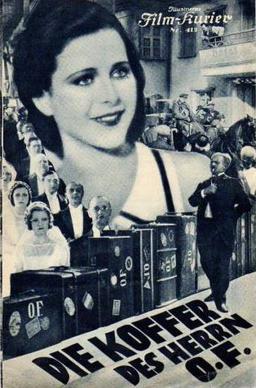
The Trunks of Mr. O.F. is a 1931 German comedy film directed by Alexis Granowsky and starring Alfred Abel, Peter Lorre, and Harald Paulsen. Produced by Tobis Film, it was made at the Johannisthal Studios in Berlin with sets designed by the art director Erich Czerwonski. The film was shot between 15 September and 17 October 1931 and premiered in Berlin's Mozartsaal on 2 December 1931. The film was then heavily cut down to a shorter running time, and re-released under the alternative title Building and Marrying. It received its Viennese premiere on 4 June 1932.
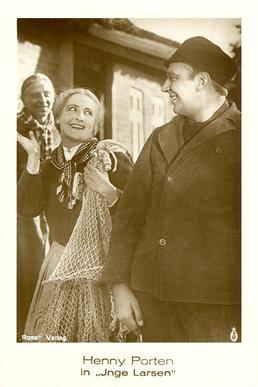
Inge Larsen is a 1923 German silent drama film directed by Hans Steinhoff and starring Henny Porten, Paul Otto and Ressel Orla. It was shot on location in Copenhagen. The film's sets were designed by art directors Alfred Junge, Ludwig Kainer and Fritz Lück.
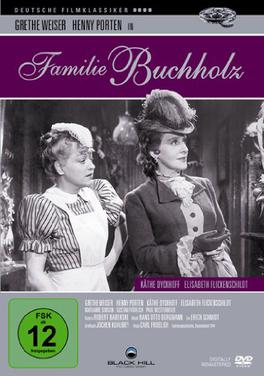
The Buchholz Family is a 1944 German drama film directed by Carl Froelich and starring Henny Porten, Paul Westermeier, and Käthe Dyckhoff. It is a family chronicle set in late nineteenth century Berlin. It is based on an 1884 novel by Julius Stinde. It was followed by a second part Marriage of Affection, released the same year. It was shot at the Tempelhof Studios in Berlin. The film's sets were designed by the art director Walter Haag.
The Golden Calf is a 1925 German silent drama film directed by Peter Paul Felner and starring Henny Porten, Olga Engl and Rosa Valetti.
Prater is a 1924 German silent film directed by Peter Paul Felner and starring Henny Porten, Cläre Lotto, and Ossip Runitsch.

When She Starts, Look Out is a 1926 German silent comedy film directed by Carl Froelich and starring Henny Porten, Bruno Kastner, and Curt Bois. It was shot at the EFA Studios in Berlin. The film's sets were designed by Franz Schroedter. It premiered the UFA-Palast am Zoo.
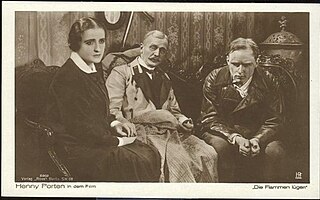
The Flames Lie is a 1926 German silent drama film directed by Carl Froelich and starring Hans Adalbert Schlettow, Ruth Weyher and Henny Porten. It was shot at the Staaken Studios in Berlin. The film's sets were designed by Franz Schroedter. It was made by UFA and released under the Parufamet agreement.
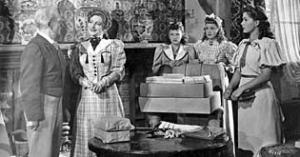
When the Young Wine Blossoms is a 1943 German comedy film directed by Fritz Kirchhoff and starring Henny Porten, Otto Gebühr and René Deltgen. It was based on a play by the Norwegian writer Bjørnstjerne Bjørnson which had previously been adapted into a 1927 German silent film of the same title.

She and the Three is a 1922 German silent comedy film directed by E. A. Dupont and starring Henny Porten, Hermann Thimig, and Robert Scholz.
The Voice of the Heart is a 1924 German silent drama film directed by Hanns Schwarz and starring Mary Johnson, Fritz Kampers, and Ágnes Esterházy.

The Golden Crown is a 1920 German silent film directed by Alfred Halm and starring Henny Porten, Paul Hartmann, and Hugo Pahlke.

A Drive into the Blue is a 1919 German silent comedy film directed by Rudolf Biebrach and starring Henny Porten, Georg Alexander, and Jakob Tiedtke.

The Lady, the Devil and the Model is a 1918 German silent drama film directed by Rudolf Biebrach and starring Henny Porten, Alfred Abel and Eugen Rex.
The Teahouse of the Ten Lotus Flowers is a 1919 German silent crime film directed by Georg Jacoby and starring Ellen Richter, Victor Janson and Meinhart Maur.
The Last Witness is a 1921 German silent film directed by Adolf Gärtner and starring Albert Bassermann, Elsa Bassermann and Olga Engl. It was shot in 1919, but not released until April 1921.
References
- ↑ Krautz p.105